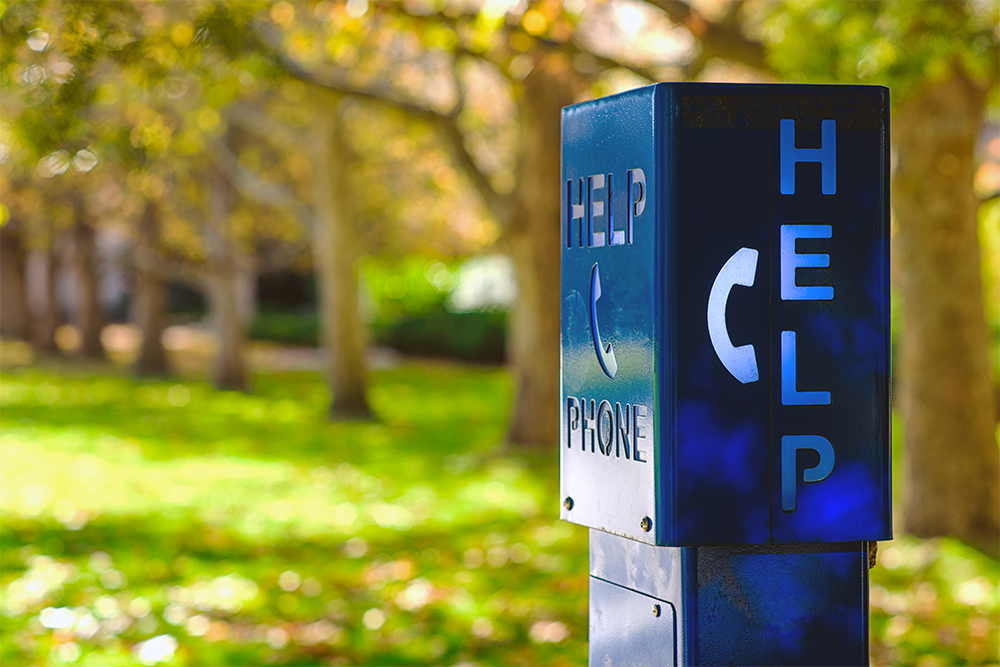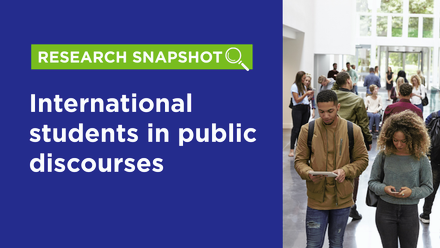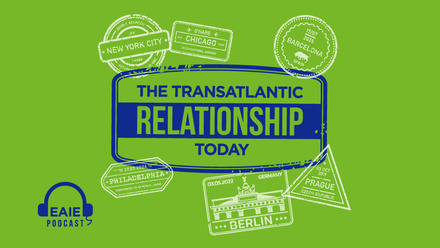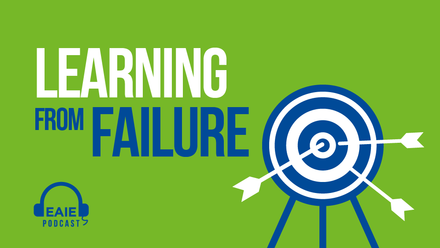Leaving no one behind: providing higher education in emergencies

The world we live in is unstable, with an increasing number of conflicts, crises and disasters affecting everyone across the globe. There are now more people displaced than ever before. While emergency relief in basic education has a crucial role, we argue that higher education should not be neglected in responding to emergency situations.
The effects of higher education provision might be less tangible to grasp compared to other education sectors, but its importance in terms of skills and leadership development, shaping of identity and preparation for a post-conflict society are obvious. In this sense, and like many higher education actors, Nuffic, DAAD and Campus France feel there is a moral imperative to support and provide higher education in emergencies. Our organisations are collaborating to support higher education sectors across the world and we’ve learnt that we can only succeed by working together.
As global instability appears set to increase, supporting higher education around the world has never been more important. Our organisations believe higher education is vital for the peaceful and prosperous development of societies and plays an important role in preventing and mitigating conflict. As a result, higher education in emergencies, focused on opportunities for the displaced and otherwise impacted young populations, is crucial to avoid lost generations, generate better livelihoods, for Bildung, to foster hope and perspective, and to support the future (re)construction of societies. In this blog, we’ll discuss how we’re helping, now and in the future, and how we think the European higher education community can play a role in emergency situations.
Offering HOPES for refugees and host communities
It was 2016 and the Syrian Civil War had already been raging for almost five years when the implementation of our first joint project for refugees and host communities started: Higher and Further Education Opportunities & Perspectives for Syrians, or HOPES. HOPES was a regional project offering a range of higher education activities for refugees and vulnerable host communities in Egypt, Iraq, Jordan, Lebanon and Turkey, funded by the EU Regional Trust Fund in Response to the Syrian Crisis (also known as the ‘Madad Fund’) and implemented by DAAD, Campus France, Nuffic and the British Council. Under HOPES, we offered scholarships at local higher education institutions, supported the capacity building of institutions to deal with the influx of Syrian refugees and provided various group training opportunities, among other things.
One thing is clear: providing education in emergencies is not something any organisation can do alone
In 2020, HOPES was succeeded in Lebanon by HOPES-LEB, implemented by DAAD, Campus France and Nuffic, building on the lessons learned under the previous project. As an example: through a series of stakeholder dialogues called ‘Higher Education in Times of Collapse’, we expanded the dialogue on higher education in emergencies specifically in Lebanon, a country dealing with overlapping socio-economic and political crises.
In many ways, the original HOPES initiative was a pilot project. This meant that there were invaluable lessons to learn, such as using a pathway approach that not only gave options for higher education but also addressed issues of access to education and to labour markets after graduation, providing much needed stability in people’s lives. Finally, programmes like HOPES(-LEB) can be an important first step of a pathway for young people to study in Europe, thus contributing to skilled migration.
Future-proofing our programming
Fast forward to January 2023, when we will start the implementation of a new EU-funded support programme, this time for students and young professionals in and from Myanmar. A wholly different context, but with similarities to HOPES-LEB and other work we have done on higher education in emergencies. Topics like personal security, access to study and training courses and the recognition of prior learning are of vital importance to address when offering higher education opportunities in emergencies.
This new programme also provides a chance to future-proof our programming capabilities by providing even more diverse study opportunities, such as virtual internships, artistic residencies and other trainings. These new options enable us to make use of new educational technology and offer more choices to target the group, granting it a truly global reach. While digital tools are not universally available to all, digitalisation in higher education is an irrefutable fact that offers incredible opportunities for universities and institutions like ours alike. The development of this programme also showcases the ability of higher education stakeholders in adapting the collaborative approach to new and challenging contexts.
To enable others and to be enabled
Ultimately, one thing is clear: providing education in emergencies is not something any organisation can do alone. Be it in the Middle East, Africa, South East Asia or other conflict-affected regions, issues like security, access, livelihoods and health impact the ability to deliver education to those in need. We have benefitted from the invaluable help of a wide range of actors, from UNHCR to local and European higher education institutions, as well as national governments and international bodies, granting a multifaceted and multidimensional quality to our approach. They’ve helped us select the right candidates for scholarships and training courses, they’ve supported us by being donors or enablers, and of course they’ve been providing education and training for those in need. Along the chain, organisations have worked together to do their part.
Think of the impact we could make if just 5% of higher education scholarships were made available to refugees
Evidently, providing higher education in emergencies is a daunting task. As a starter and for inspiration, we have outlined some of the options any one higher education institution can take to support higher education in emergencies.
Mainstream your programming so that refugees are an implicit part of the target audience. There are, for example, many scholarships available in the higher education sector; think of the impact we could make if just 5% of those were made available to refugees.
- Mainstream your programming so that refugees are an implicit part of the target audience. There are, for example, many scholarships available in the higher education sector; think of the impact we could make if just 5% of those were made available to refugees.
- Waive tuition fees for digital programmes so that we can connect across the world in delivering education where it is needed the most.
- Engage with national agencies like us to share experiences and tackle the tough questions surrounding refugee support, such as the recognition of prior qualifications or psycho-social support.
- Reach out to your (inter)national decision makers and stakeholders to act as an advocate for the importance of higher education in emergencies.
There are many more options for all kinds of higher education stakeholders to join forces and provide access to education in emergencies, which is truly life changing for those who benefit from it.
We – Campus France, DAAD and Nuffic – believe that as national organisations we can play our part in tackling the greater crises of our time. To do so, we look to collaborate with and enable others. Institutions, individuals, communities and organisations, in Europe and across the world. That is to say: we are here for you and ready to engage with you on this topic.






